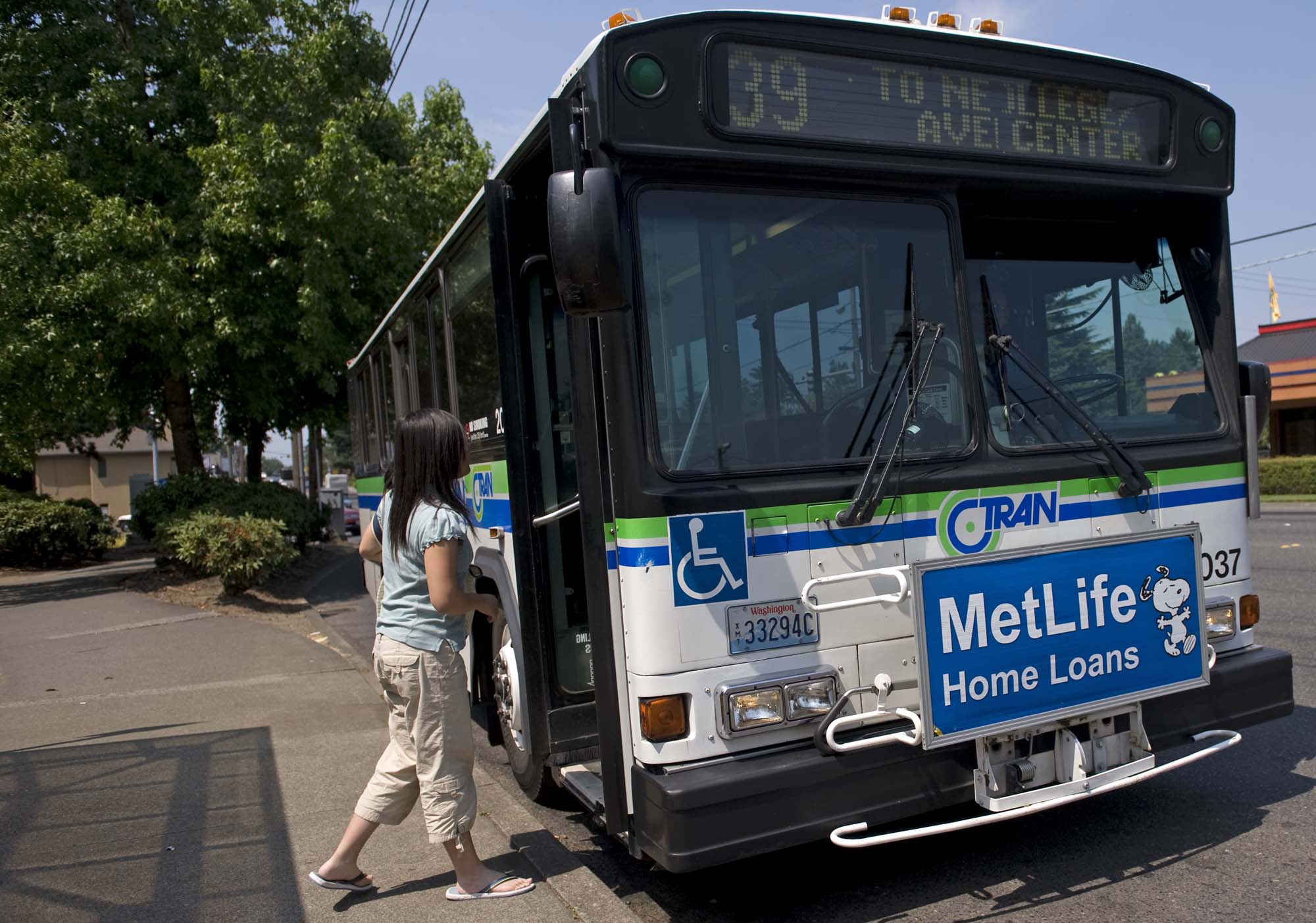C-Tran will ask a Clark County judge whether the veto power in its own bylaws passes legal muster, following a discussion by the agency’s board of directors on Tuesday.
C-Tran’s bylaws give both Clark County and Vancouver veto power on the board, allowing them to nix any action approved by the rest of the body. As long as all three members from either jurisdiction are united against a proposal, no amount of yes votes can get around it.
That power has existed as long as C-Tran. It’s never been challenged in court, said C-Tran legal counsel Tom Wolfendale. Now, after new questions about the veto emerge, it appears that will change.
“Sounds like it’s time,” said Washougal City Councilor and C-Tran board member Connie Jo Freeman.
The latest discussion grew from a regular review of the board’s composition that began earlier this year. A special committee convened in June to consider changing the makeup of the board. But the effort stalled this fall when uncertainties about the fate of the veto provision arose.
At issue is what happens to the veto if either Vancouver or the county loses a seat on the C-Tran board. Multiple legal opinions came up with different conclusions.
Wolfendale indicated Tuesday he’ll ask two questions to a judge: How the rule should be interpreted, and whether the veto is legal at all.
The issue has been the subject of debate before. Some board members, including current Chairman Bill Ganley, have openly questioned whether the veto is legal. Wolfendale didn’t go that far, but said it is “problematic.”
Before deciding to go to a judge, the board considered a set of revisions to the rule. One would add an override clause allowing a veto to be bypassed by a two-thirds majority. On the C-Tran board, that’s six of nine votes.
‘Kind of futile’
Clark County Commissioner Tom Mielke suggested that any decision on the bylaws be postponed 30 days and considered again next month. But after Vancouver Mayor Tim Leavitt made it clear that his city would not support any change to “undermine” its authority on the board, a frustrated Mielke withdrew his motion.
“It’s kind of futile for us to have any action at all,” Mielke said.
Under C-Tran rules, any change to the veto power would require the consent of all those holding it — all three county commissioners, and all three Vancouver City Council members on the board. Leavitt said Vancouver’s council wouldn’t support an override, effectively dooming the idea even if it waited a month.
“If the city doesn’t agree, and they don’t, it’s going to be 30 days wasted,” Mielke said.
The veto has only been wielded a handful of times in the agency’s history. The most recent veto happened in September, when Vancouver blocked a motion to change the order of the agenda during a special meeting on the Columbia River Crossing.
The C-Tran board currently includes nine voting members: the three Clark County commissioners, three representatives from the Vancouver City County, and three seats shared in pairs by Camas/Washougal, Ridgefield/La Center and Battle Ground/Yacolt. The board also includes a nonvoting labor representative.
The smaller jurisdictions on the board don’t hold the same veto power. That’s led some to object to it during this year’s review process.
The committee mulling a shake-up of the board is scheduled to meet again in December. But any decision now will likely wait until a judge weighs in.




